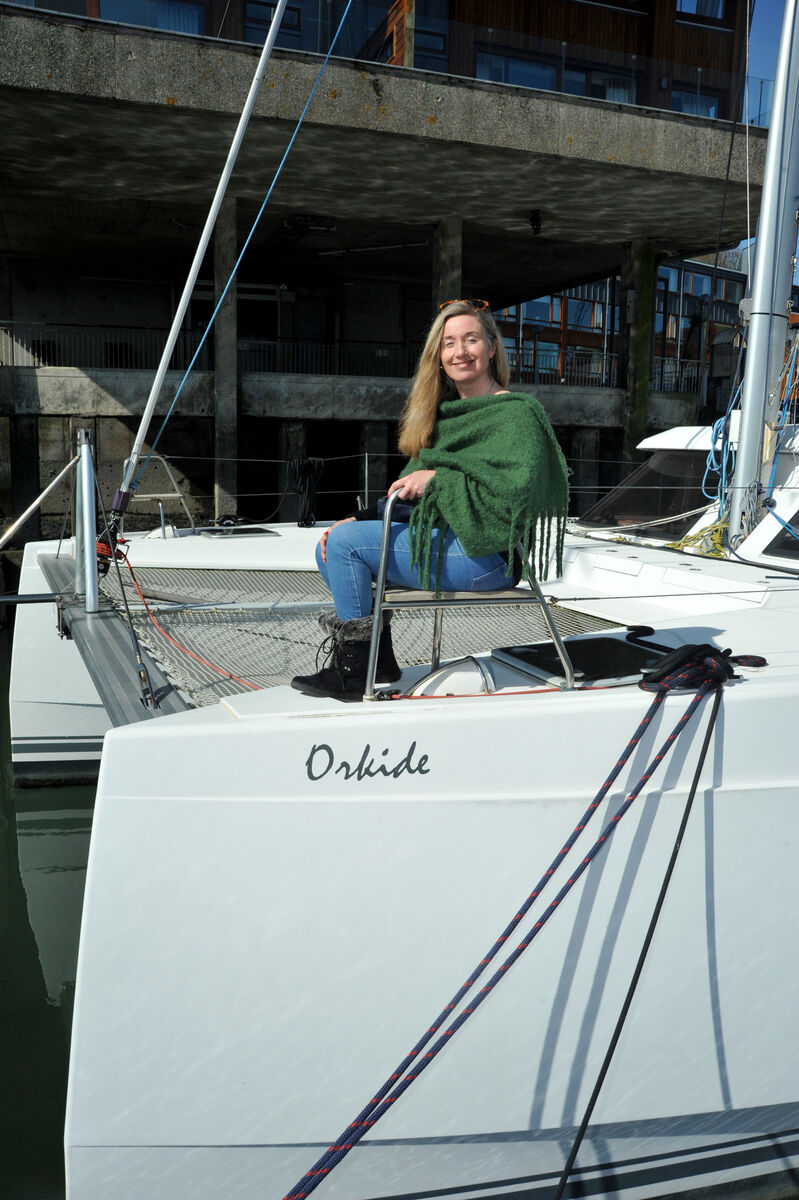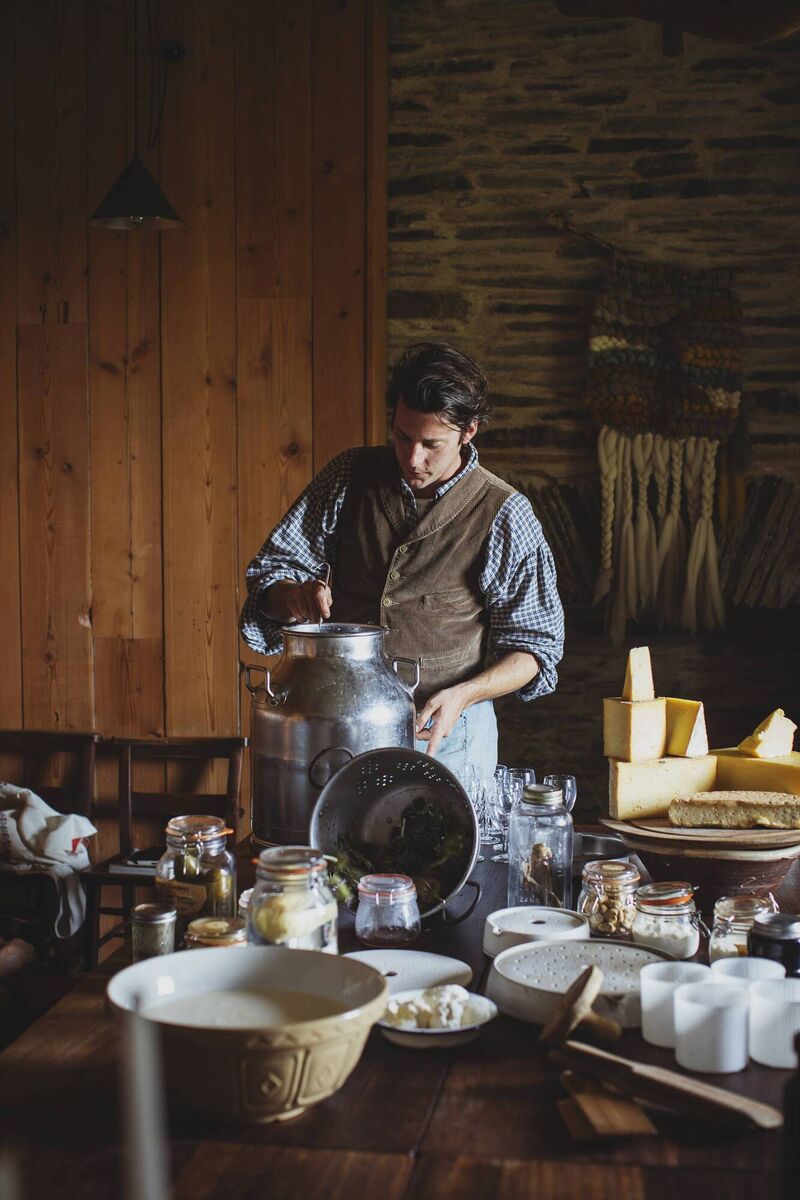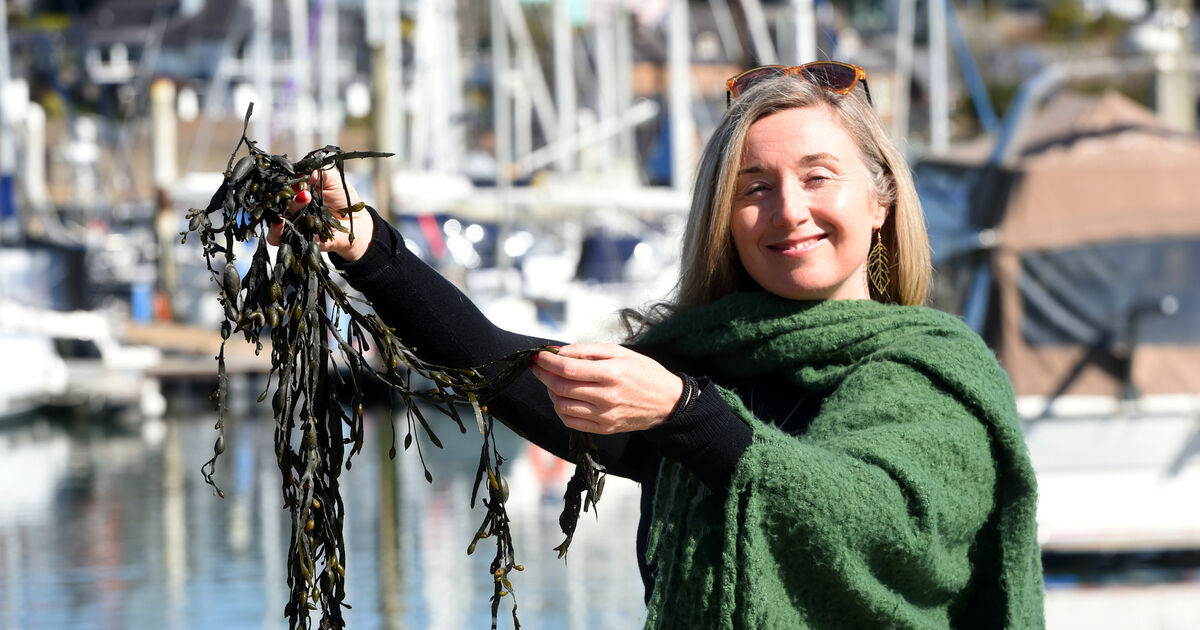AS an island, our coastline remains surprisingly mysterious to many of us.
We prefer to stand looking out to sea, while admiring our green grasslands and the abundance of life and food on the land.
All the while, at the ephemeral border between water worlds and terra firma, there is much to explore and new tastes to encounter.
In her 2013 book , food writer Sally McKenna opened up the world of seaweeds by showing us their versatility and function as delicious foods packed with nutrition and those essential trace minerals that are often lacking in our diets that help to keep our health vital.
Of her passion for seaweeds, McKenna has said: “Seaweed is the oldest form of life on our planet. Seaweed fossils have been found that are 1.2 billion years old.
She goes on to say that seaweed is where the fabled fifth taste, known as umami, was first discovered.
But of course, it’s not just seaweeds that are abundant around our coastline. Other plants, like sea spinach, samphire, sea buckthorn and Japanese rose, also pack a punch for flavour and healthfulness.
Cockling, picking periwinkles and salting out razor clams on the beach are not just seafoods that taste delicious and are sources of protein, but are often overlooked because of their connotations with famine times.
While books like can inspire and offer ideas for what to do with your bounty of coastal forage, a guiding hand in teaching you how to be a good forager is a good place to start.
Here are some of the best foraging experiences to tap into this summer.
Sally Barnes of Woodcock Smokery
Spend the day in the company of one of Ireland’s pioneering artisan food producers, Sally Barnes.
Famed for her multi-award winning smoked wild Irish salmon, Sally is also a passionate advocate for the marine environment.
Beginning in the morning at The Keep adjacent to the rustic smokery, for cups of raking tea, guests will venture to a favoured coastal location to source a variety of edible delights, identifying marine plants, tasting as you go, and collecting just enough to prepare a lunch, and learn how to use your finds in your own kitchens.
There will be homemade cordials, various tasty bits from the smokery, plus the best produce from local suppliers such as cheeses, salads, fruits, good butter, and good breads.
Departing from Reen Pier near Union Hall in West Cork at low tide, this tour with experienced instructors will guide you to places around the coastline accessible only by kayak where an abundance of sea vegetables grow. During the half-day excursion, learn how to identify and pick them in a safe, sustainable way, and how to cook and eat them, turn them into natural cosmetics, and other uses.
 Suzanne Burns, founder and lead guide at Kinsale Food Tours. Picture: Larry Cummins.
Suzanne Burns, founder and lead guide at Kinsale Food Tours. Picture: Larry Cummins.
Suzanne Burns founded Kinsale Food Tours with her signature Walking Town Food Tour, but also fell in love with the parallel joys of food and coastline around the picturesque gourmet town of Kinsale.
With its high and low craggy shoreline and a temperate climate, there is plenty to forage all year round. Learn how to identify edible wild shellfish, seaweed and plants, then enjoy a gourmet picnic of goodies that includes some wild edible tastes prepared by local producers. You can even bring your best-behaved pooch with you for this two hour (or so) easy ramble.
The Bantry Seafood Tour mixes the exhilaration of fast boats with the calming nature of the enveloping landscape. Get up close with wild marine and bird life, learn about the fascinating history of the area, visit rope-grown mussel beds of Bantry most famous seafood, and lift a lobster pot to check for some fresh catch of the day. Then scoot over to Whiddy Island and its only pub for a bowl of delicious Bantry Bay Mussels, brown soda bread with butter and a pint of Guinness before boarding back to shore.
 Max Jones, pictured in his Booley near Leap in West Cork. Picture: Heather Birnie
Max Jones, pictured in his Booley near Leap in West Cork. Picture: Heather Birnie
Traditional food conservationist, Max Jones, invites you to explore a pristine stretch of West Cork coastline and rediscover traditional techniques of harvesting wild razor clams, cockles, mussels, brown shrimp, prawns, shore crabs, and wild greens.
Enjoy these delectable gems two ways: in their raw natural state and gently cooked over fire.
In the afternoon, see a demonstration of traditional ways of preserving excess cockles and mussels drawing from Irish, Welsh, Cornish, English and Spanish methods, including use of olive oil, beef dripping, fermented wild garlic and vinegar.
Jars of goodies for everyone to take home will provide a lasting memory of a day well spent.
